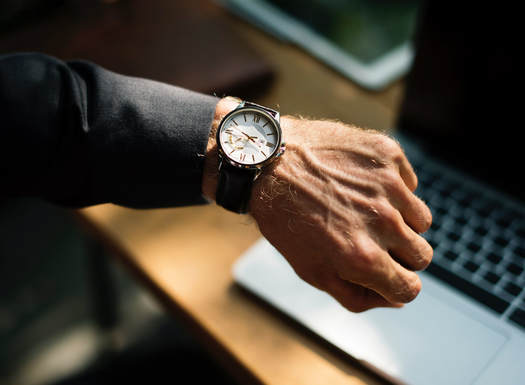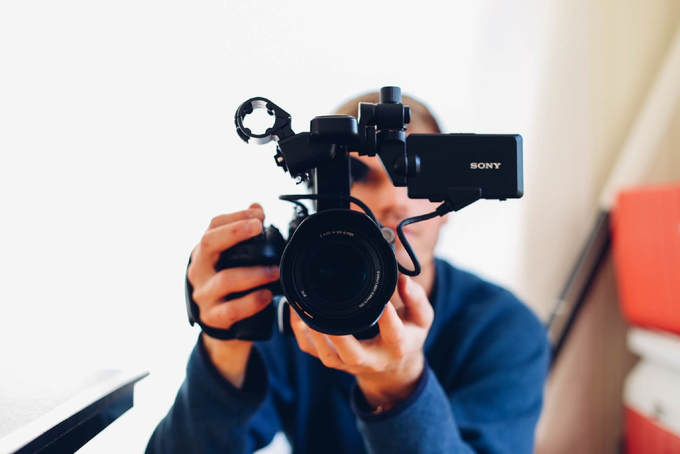|
Timeliness: For reporters, it’s one of the most important elements of a story. It can determine whether your big announcement has five journalists writing about it or none. But what is timeliness exactly, and how should you utilize it in your PR strategy?
According to dictionary.com, to be “timely” is to be “occurring at a suitable time; seasonable; opportune; well-timed.” In the media world, a timely story has some sort of “hook” that makes it relevant to the day’s news and events. Timeliness answers the question “Why am I hearing about this now?” for the public.
0 Comments
This is the final of a three-part series on how to conduct a successful interview with the media. Read previous posts about understanding the media and preparing for an interview.
Now that you’ve done your research and prepared your talking points, it’s time for the big event! Follow our top ten pieces of advice below, and you’ll be well on your way to being an interview pro: This is part two in a three-part series on how to conduct a successful interview with the media. Read the previous post about understanding the media here.
One of the easiest ways you can make sure you have a successful interview is to adequately prepare. Below are our top pieces of advice to help you prepare for an interview. Know what to expect: Conduct some research yourself: Has the reporter written on this topic before? What angle did they take? This might give you a better sense of what to expect during your interview. You can also ask the reporter what types of questions will be asked to get a general sense (they probably won’t give you specific questions). Make sure you’re up on current events in your field so you're less likely to be caught off-guard by a question. 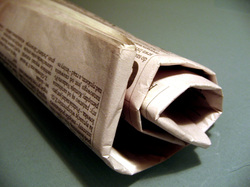 You may be tempted to pitch your latest widget as a great subject for a media interview. It's a new product that will do wonders, you think. How could it not make news? Stop the presses. Stop thinking about the product and your company. Stop thinking about yourself. Think, instead, about the viewers, listeners or readers you're trying to reach. What do they think? What do they need? What are they most interested in learning? 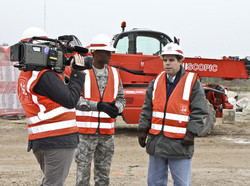 When you have the opportunity to speak to the Media, it's easy to get caught up in the moment. Questions such as, "How do I look?" become more important than, "What should I say?" To help bring you back to your main objective, which is to get your story told in the best possible light, it's helpful to think of what sound bite you want to appear on radio or television or what quote you want to read in print. So, before you begin the interview, have one or more "bites" in mind that you'll sprinkle throughout the interview. Sound bites are the key informational or influential nuggets you want readers, listeners or viewers to take away from the news story. You want them to see and hear your point of view. Here's one technique. 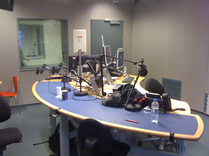 You'll usually find it's better to speak with a reporter than keep silent, particulary when others who are speaking could cast you or your organization in a negative light. Saying, "No comment," can make you look guilty or as if you have something to hide. But, there are times when refusing an interview request may be the best approach. |
tags
All
Archives
March 2019
|
Photos from Meet the Media Guru, Joseph.Morris, BoldContent, MDGovpics, Grzegorz Łobiński, Mr Moss, North Charleston, ITU Pictures, wistechcolleges, .v1ctor Casale., www.audio-luci-store.it, katielips, editor64, NeighborLink Fort Wayne, AMagill, timsackton, MyFWCmedia, Matt J Newman, Mr.TinDC, Skley, mikecogh, othompsonski, wayne's eye view, Elvert Barnes, woodleywonderworks, North Charleston, MoBikeFed, flossyflotsam, North Charleston, NYCDOT, US Mission Geneva, jjandames, aalborgstift, BurnAway, A. Germain, North Charleston, NCDOTcommunications, IAEA Imagebank, The Chapman Cultural Center, hitsnooze, Wiertz Sébastien, charliekwalker, cliff1066™, TheeErin, woodleywonderworks, dane brian, Aramil Liadon, 2010 World Wheelchair Basketball Championships, Ty Nigh, freddthompson, Nadia Szopinska, west.m, stormwarning., Bright Meadow, Giorgio Montersino, Chris Erwin, Aplomb, jfingas, joce01_y, Massachusetts Dept. of Environmental Protection, Kevin Walter, Andrew Feinberg, Yan Arief, kellypretzer, Korean Resource Center 민족학교, veDro - l'Italia al futuro, crdotx, US Mission Geneva, Joe Shlabotnik, esocialmediashop, Stephen Cummings, CarbonNYC, sidewalk flying, MoBikeFed, marksdk, Marco Raaphorst, Saleel Velankar, adactio, edkohler, World Economic Forum, USACE Europe District, stereogab, Florin Rosoga, MikeSchinkel

